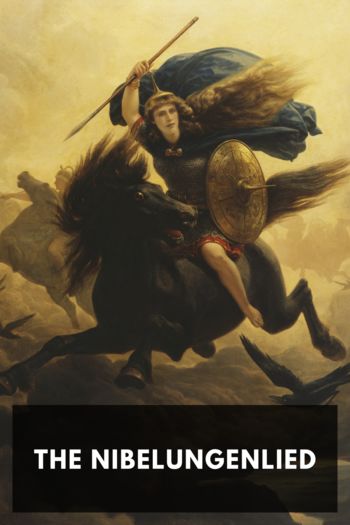The Trials of Radclyffe Hall, Diana Souhami [best sales books of all time .TXT] 📗

- Author: Diana Souhami
Book online «The Trials of Radclyffe Hall, Diana Souhami [best sales books of all time .TXT] 📗». Author Diana Souhami
Vladimir found a factory job ‘packing food parcels’. Evguenia hoped when his English improved he would get something better. In 1948 she worked as a newsreader with the BBC World Service. It had always been her desire to have a home of her own. She had resented being an appendage of John’s life with Una. She leased a house in north London at 33 Lynton Road, Kilburn and let out rooms in the hope of realizing a rental income. But her boarders were Russian refugees and students with no money. The house needed extensive repairs; the bathroom ceiling was falling down and the front path needed laying. She asked Una for £60. ‘I am not rising to the bait. She has her salary, her husband is in a job, she has boarders and she has my allowance. I leave her to it for the present. Luckily I am keeping her allowance on the lower scale. I have sent her £15. I am not a perpetual running fountain of cash. The next costly request will have to be refused in toto.’ Evguenia could not maintain the house and after two years sold the lease for no more than she paid for it.
In January 1949 Una moved to a smart flat at Palazzo Guicciardini. She put Radclyffe Hall’s name on the front door as well as her own. She bought antiques, had the floors polished and bells installed in all the rooms to summon her maid, Primetta. She adorned the walls with devotional paintings and was adamant that a Madonna and Child she had acquired was by Botticelli. It and Buchel’s portrait of John were floodlit. She filled the rooms with jonquils, freesias and pink blossom in marble vases, and gave her visitors fine wines and lobster for lunch, the table laid with Sienese linen, wrought-iron candleholders and gleaming silver. Primetta wore a uniform and served at table.
In her vast salone, lying on damask cushions on the sofa and wearing John’s Jaeger dressing gown, Una listened to Parsifal on her ‘mammoth’ radio. ‘How Wagner does iron one out flat’, she said. She heard Manon Lescaut and Otello broadcast live from La Scala and played opera records and Paul Robeson singing The Blind Ploughman. ‘I am deeply grateful to the survival of my love of opera which gives me now the only emotional pleasure I know.’ She slept well and put on weight with Primetta’s home-made pasta. She enjoyed home cooking after ‘years of too much restaurant seasoning’ and developed a taste for whisky, fine wines and cocktails. Her hair was now cut as short as John’s. ‘Once a fortnight now is my rule.’ A barber called, but she insisted he use her scissors, clippers, brush and comb.
She went often to the cinema and translated Don Camillo for Gollancz, and Colette’s Maison de Claudine. Young gay men, Newell and Merf and Dick and Marshall, befriended her. Together they went to operas and concerts with Una dressed in John’s black pinstripe suit and black bow tie. They called to listen to the music channel on her special radio, went to antique auctions with her and gave lavish dinners of sole with spinach, stuffed pigeon and angel cake soaked in rum.
Evguenia did not reconcile herself to the discrepancy between John’s promises and the way Una treated her. In letters to her, year after year, she returned to the injustice. After John’s death she found it hard to do better than get by. Because of her marriage she did not achieve naturalization, or hold a British passport, or merit a state pension. In April 1950 she asked Una to invest £3,000 to provide her with a pensionable income when she was sixty. ‘I beg of you to help me in the name of this Holy Year, in the name of all that is sacred to you, in the name of your friendship with John, who seemed to be so fond of me when she was alive.’
Una sent her £5, told her she was not yet fifty, had a husband and a job and that she, Una, was doing exactly what John had considered adequate. If she could afford it she would go on sending her £100 a year for the next seven years, but this was simply out of generosity. ‘She can’t be trusted,’ Una wrote in a Letter to John. ‘If she were certain of a guarantee for the future she is free of the only curb possible upon her venomous tongue and there is no limit to what she is capable of saying or doing … so long as she is uncertain of my payments or ultimate intentions, there is some measure of wholesome restraint.’ Una worried about Evguenia’s simmering resentment and what she might say publicly about promises made. She wondered whether to tell her that if she found her ‘failing in loyalty’ to Radclyffe Hall, no further money would be forthcoming.
On 29 July 1950 Evguenia, in a detailed and passionate letter, reminded Una that John on her deathbed had said she wished ‘us both to be comfortably off if not living in luxury’. She accused Una of disregarding both John’s inordinate attachment to her and her promise to provide for her after her death. ‘How often she used to say to me: “Evguenia, you can put your Piggie hands in your pig-pockets and whistle, your future is well taken care of.”’
John had insisted that she could not live without her and had told her again and again she was sure they were related. She, Evguenia, had for nine years struggled to make a





Comments (0)